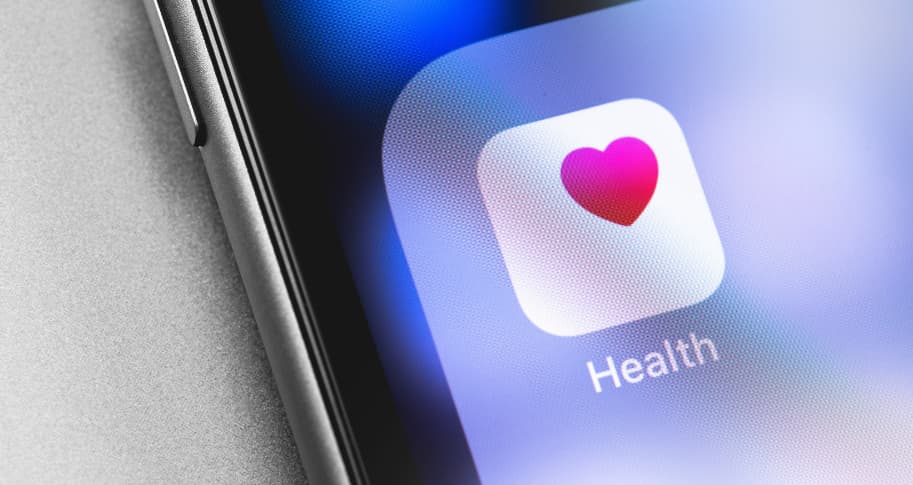
Almost all my routine doctor’s visits go the same way: I make an appointment, check in with the front desk, and then a nurse escorts me to a room to wait for the physician. But recently, instead of hearing a doctor scratch notes down with pen and paper, I have noticed that I instead watch my doctors over the edge of their tablets. But the importance of this phenomenon goes beyond my own personal curiosity. Understanding how this shift to using tablets and other computing technologies in the consultation room affects the patient-physician relationship is crucial for healthcare providers to deliver quality care.
There is concern that the increased use of health information technologies (HITs) adopted by primary healthcare organizations may lead to a potential decrease in the personal connection and human touch in patient-physician interactions. In “Tablet in the Consolation Room and Physician Satisfaction,” University of Arkansas professor Rajiv Sabherwal along with Iris Reychav (Ariel University), Richard Kumi (UA Little Rock), and Joseph Azuri (Tel Aviv University) study the effects of this new era of technology in healthcare. Specifically, they focus on the influence of tablets during consultations and the influence of specific tablet applications on physician satisfaction.
Studying the impact of certain technologies can inform policy makers, researchers, health management organizations, and primary healthcare providers on how to successfully implement HITs and how to receive the most from using them.
Why Use HITs?
In this study, the researchers focus on the primary healthcare community, which includes non-emergency health service. Physicians, internists, pediatricians, and geriatricians are all under this umbrella. Studying the attitudes, perceptions, and empathy of these healthcare providers contributes to the overall satisfaction of the patient.
Many physicians will rely on HITs to facilitate their decision making as they navigate a diverse range of patients. Doctors gather a tremendous amount of information during their visit with a patient and are expected to make a correct diagnosis. HITs help physicians throughout the process to ensure an accurate evaluation.
While there are mixed results, many studies have shown that health information technology can improve the quality of care by and thus increasing patient satisfaction. These mobile and tablet technologies are preferable to rolling workstation carts that cannot be used during consultations. The iPad is the preferred device by physicians to look up information, consume content, interact with patients, and read emails.
Using HITs in the consultation room can enhance the capacity of the physician and empower their decision-making. The tools and applications found on the tablets include drug information and interaction, content search tools, electronic textbooks and readers, clinical calculators, medical research databases, and clinical decision support tools. For example, when doctors use handheld computers to access pharmacopeia (a book of medicinal drugs, their effects, and directions for their use) they are more likely to not make a medical error and provide safer care.
The researchers concluded from the data that the average physician satisfaction is significantly higher for the 38 medical encounters that did use the tablet than those who did not. The results suggest that using a tablet in real-time during a consultation increases physician satisfaction.
During the consultation, physicians could use the tablets to share information, update medical records, and review recommendations. The tablet provided had links to medical databases and general health information on the home screen including a medical knowledgebase site, electronic health record portal, and the hospital's website. The portal contained general medical information and specific patient information including lab results, imaging results, and recommended personal screening. Physicians who specifically utilized applications to educate or inform patients were more satisfied on average than those who did not. The results suggest that using these certain information-sharing applications during consultations can improve physician satisfaction.
Potential Risks
While tablet use can increase physician satisfaction, the researchers found that the technology can reduce personal touch in the consultation room. Physicians may become distracted by the use of a tablet and not pay sufficient attention to patients.
With the increased use of HITs, physicians spend more time facing an electronic screen than with patients. In a study that focused on physician burnout in the electronic era, the researchers found that U.S. physicians only spend 24% their time on patient communication. The rest of their time is spent on clerical and data-entry tasks including inputting diagnoses, physician orders, patient visit notes, and other administrative data. A barrier exists for the permanent use of HITs because of worries and hesitation about physician burnout.
The challenges computer technology brings into the consultations room include information overload and reduced focus on patients, which could reverse any benefits HITs may provide. Therefore, physicians and HMOs should carefully plan any integration of HITs into medical consultations. If the potential risks outweigh the benefits, healthcare providers may resist the push of integration.
However, advances in technology will make the resistance much harder. In 2013, a research report observed that tablet adoption in U.S. physicians increased by 10% in one year (up to 72%). It was also estimated that by 2108, there will be 1.7 billion mobile health application users globally. Stanford Medicine’s 2020 Health Trends Report suggests a future of a digital health market. Almost half of the physicians from the study reported to be currently seeking out additional training in order to prepare for the technological innovations that will reform patient care in the next 20 years. Tablet use will only continue to increase and therefore more studies are required to fully explore how these technologies impact patient care.
Physicians are tasked with understanding and processing large amounts of information to accurately make informed decisions and recommendations. Tablets and other computing technologies have the ability to empower physicians with tools that reinforce or facilitate their thinking. The results from this study suggest that tablets can influence physician satisfaction, however, only certain applications and functions will have a positive effect.
HITs are intended to facilitate patient-physician interaction, but if the potential risks outweigh the benefits, then healthcare providers will keep them out of primary healthcare. Before any implementation, organizations and healthcare providers should consider the stakeholders, the effects, the risks, and then create a strategic plan to ensure its success.
And the same can be said for any industry facing technological innovations or widespread adoption of new devices. Anything that takes us away from our primary concern – whether they be patients or clients – should be considered and implemented with care and intentionality.






